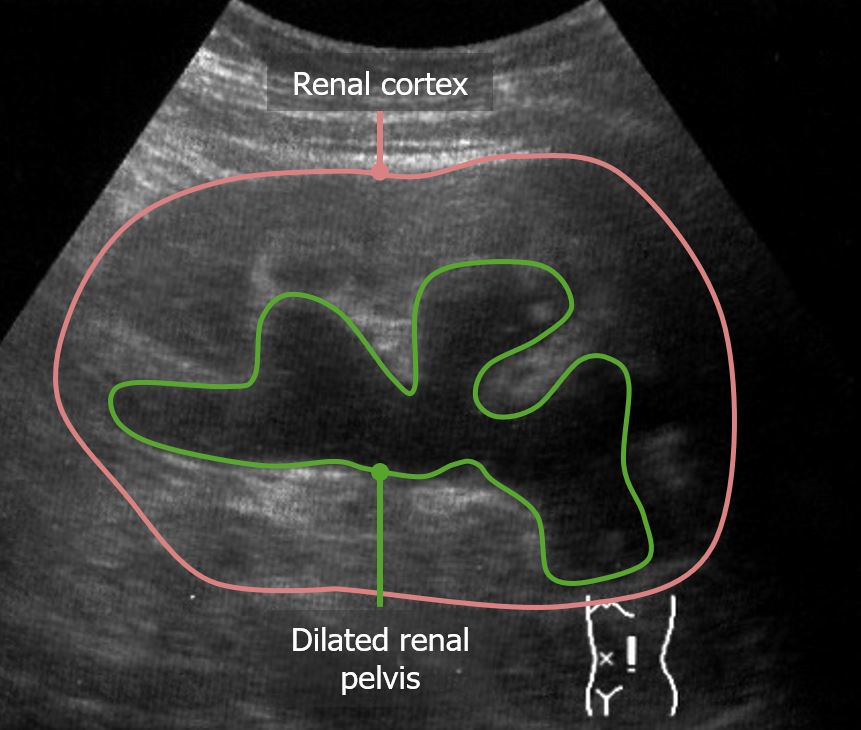Playlist
Show Playlist
Hide Playlist
Chronic Kidney Disease (CKD): Complications with Case
-
Slides Nephrology Chronic Kidney Disease.pdf
-
Reference List Nephrology.pdf
-
Download Lecture Overview
00:01 Let's move on to another case. 00:03 We have a 61 year old gentleman who has stage 3B CKD due to diabetic nephropathy and hypertension, So we're already kind of thinking about where his GFR is and what some of his risk factors are. 00:15 On lab says serum creatinine is 2.1 milligrams per deciliter. 00:18 We can see that that's elevated and his estimated GFR by ckd-epi is 31 miles per minute. 00:25 His proteinuria is estimated at 490 milligrams by spot protein to creatinine ratio. 00:31 He's on an Ace inhibitor, but his blood pressure isn't that well controlled isn't about the 140s over 80s. 00:37 So the question is, what is the most likely outcome for this gentleman? So what do you think? You think he will progress to stage 5 chronic kidney disease and need dialysis or renal replacement therapy within the next 3 years. 00:53 Do you think his creatinine will stay the same over the next three years? What do you think He might die from a cardiovascular event like an acute coronary syndrome or something of the like within the next 3 years? And you might be surprised to know that the correct choice is actually the third choice that this gentleman's biggest risk is dying from a cardiovascular event. 01:15 And this really brings us to our next part of the talk, which is really talking about consequences of having CKD. 01:22 One of the biggest ones that I don't want you to forget and again if you just take home one point from this lecture, I want you to remember that when a patient has chronic kidney disease, the most significant outcome or consequences from having that is developing cardiovascular disease. 01:37 So the majority of patients with CKD will die from cardiovascular disease rather than progress to end-stage renal disease and CKD and cardiovascular disease do share many risk factors. 01:49 But even when those variables are factored out there is an independent risk for developing cardiovascular events in chronic kidney disease patients. 01:57 And that increase in risk of having cardiovascular events or disease is associated with both a decrease in GFR and also an increase in proteinuria. 02:07 So this is a graph that really illustrates the point of what I'm talking about. 02:11 This is taken from the Nephrology division at OHSU and you can see on the y axis we have percentage of cases and on the x-axis we have groups of patients in either stage 2, 3 or 4 chronic kidney disease, which you can see designated by the GFR. 02:26 So what they did is they followed patients over a five-year period of time. 02:30 And they look to see how many patients actually progressed to the need of end stage renal disease or how many patients actually died from a cardiovascular event. 02:40 And what is so shocking to look at here is if you see again most patients are actually dying from a cardiovascular event particularly focus on that stage three chronic kidney disease. 02:52 Those are patients who have GFR between 30 and 59 the bulk of those patients we'll go on to die from a cardiovascular event. 02:59 So again, it's going to be important for us as good primary caretakers and as nephrologist to be able to target the cardiovascular system and modify those risk factors for our patients. 03:11 Now another consequence of having CKD is actually hypertension. 03:15 So it's interesting because most patients with hypertension or patients with hypertension can manifest with chronic kidney disease, but even patients who did not have hypertension to begin with can develop it because of their chronic kidney disease. 03:27 So presents an about 80 to 85% of patients who do have CKD and the cost is really multifactorial. 03:33 It includes sodium retention, and increase in activity of the renin-angiotensin-aldosterone system, enhanced activity of the sympathetic nervous system, and mechanisms some secondary hyperparathyroidism. 03:46 When our patients have hyperparathyroidism, they have a rise in the intracellular calcium and that can cause vasoconstriction. 03:53 And then there's also some imbalance on these mediators they have impaired nitric oxide synthesis and endothelium mediated vasodilation. 04:03 Another consequence of having chronic kidney disease is mineral bone disease. 04:07 So mineral bone disease refers to issues with calcium and phosphorus balance. 04:12 When you have a decrease in GFR, it leads to a decrease in urinary phosphorus excretion. 04:17 But remember our parties are so elegant they have out a regulatory processes that can account for this. 04:22 So there's a compensatory increase in a phosphatonin called FGF-23, and what that does is it increases phosphorus excretion and attempts to maintain normal serum phosporus concentration, but the problem with that is that FGF-23 also inhibits 1 Alpha hydroxylase, remember this is an enzyme at the specialized tubular epithelial cells and that is responsible for activating vitamin D25 to its active form calcitriol or 125D. 04:52 So if we don't have that available or if that's inhibited by FGF-23, we now have a decrease in the active form of vitamin D or tells a trial. 05:00 So what's the consequence of that having a decrease calcitriol will reduce the intestinal calcium absorption. 05:07 But again our body being very elegant we have to maintain normal serum calcium at all time. 05:12 So we have a mechanism to help that PTH are parathyroid hormone from our parathyroid gland will increase in response and then our patients end up developing secondary hyperparathyroidism, in order to maintain that normal serum calcium. 05:28 So once our patients develop secondary hyperparathyroidism, there is a significant consequence to having that Number 1. We worry about vascular calcification. 05:36 Remember what's going on, that parathyroid is actually parathyroid hormone is actually going to bone to reabsorb resort parts of that bone so calcium and phosphorus is liberated into the serum. 05:47 Now, we'd like it to go where it's supposed to go. 05:49 But what ends up happening is that can precipitate on blood vessels and people end up getting vascular calcification. 05:55 The other major problem that patients develop is renal osteodystrophy or bone disease and this is actually manifesting by a variety of different mechanisms, patients can develop osteomalacia, which is defective mineralisation. 06:08 They can have high turnover bone disease, which is actually shown here in our image on the right where they have periosteum medical reabsorption. 06:15 So if that gets really significant patients can develop something called osteitis fibrosa cystica where they have this peritrabecular fibrosis of bone. 06:25 Patients can also have mixed uremic bone disease where they have features of both osteitis fibrosis as well as osteomalacia, and then finally patients actually can develop something called adynamic bone disease and that's really iatrogenic. 06:37 That's something that we can cause, so when we try to treat our patients for having secondary hyperparathyroidism, meaning that they have those elevated levels of high PTH. 06:47 We can give them an active vitamin D analog like calcitriol, but when we do that and we suppress their PTH so much those bones can actually become quite brittle and they have a decrease in bone formation and turnover and that can lead to trochanteric fractures. 07:02 So we have to be very careful when it comes to mineral bone disease and it's really an area of nephrology right now that's exploding with new information. 07:10 So stay tuned. 07:12 Another consequence of having chronic kidney disease is anemia. 07:16 Anemia is defined by hemoglobin of less than 13 grams per deciliter for men and postmenopausal women and less than 12 grams per deciliter for premenopausal women. 07:27 So typically what happens is our kidney specialized fibroblasts in the kidney are actually responsible for making a hormone called erythropoietin. 07:36 Erythropoietin goes to the bone marrow and is responsible for generating new red blood cells and putting them out into the circulation. 07:42 What's interesting, Is that about 90% of patients with the GFR of less than 30 mils per minute will manifest with having anemia, again, why is this happening? Because of the fact that there's decreased erythropoietin or EPO production because as kidney function decreases those fibroblasts that actually generate Epo or erythropoietin are actually getting damaged. 08:03 So our patients manifest sometimes with very significant anemia.
About the Lecture
The lecture Chronic Kidney Disease (CKD): Complications with Case by Amy Sussman, MD is from the course Chronic Kidney Disease (CKD).
Included Quiz Questions
Which of the following statements is true regarding the relationship between CKD and cardiovascular disease?
- Reduced GFR and proteinuria are both independently associated with an increased risk of cardiovascular events.
- The risk of cardiovascular events in patients with CKD can only be explained by the presence of traditional risk factors, such as hypertension and diabetes mellitus.
- The association between CKD and cardiovascular events may be stronger among white individuals than African American individuals.
- Uremic pericarditis is the leading cause of death in patients with stage 5 CKD.
Which of the following is involved in the pathogenesis of mineral and bone disorders seen in CKD patients?
- Inhibition of 1-alpha-hydroxylase
- Increased GFR
- Decreased parathyroid hormone activity
- Increased calcitriol activity
- Decreased phosphatonin activity
What is the cause of anemia seen in patients with CKD?
- Decreased erythropoietin production
- Excessive sequestration of red blood cells in the spleen
- Vitamin deficiency
- Deficient globin synthesis
- Red cell membranopathy
Which of the following pairings is correct?
- Hypertension - Enhanced activity of the sympathetic nervous system
- Osteitis fibrosa - Defective bone mineralization
- Phosphatonin - Increased activity of vitamin D
- Hypoparathyroidism - Vascular calcification
Customer reviews
5,0 of 5 stars
| 5 Stars |
|
1 |
| 4 Stars |
|
0 |
| 3 Stars |
|
0 |
| 2 Stars |
|
0 |
| 1 Star |
|
0 |
Excellent review of CKD through case clinic and posterior discussion !




